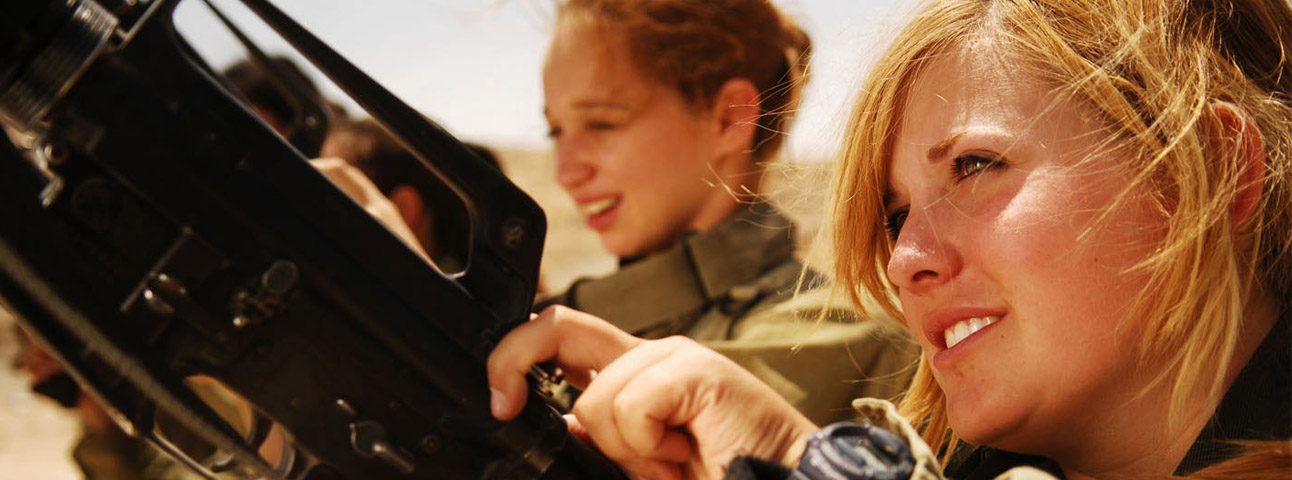What Really Lies behind the Rabbis’ Directive on Modesty?
What really lies behind the most recent rabbinical directive on modesty in the IDF - and how does it pits religious soldiers against IDF's core values to the extent of risking insubordination.

Illustration | Flash 90
A forum of rabbis serving in the IDF reserves recently published a detailed booklet on the precepts of modesty for observant soldiers, a compilation of “religious laws (halakhot) and practical directives for IDF soldiers on how to behave within the boundaries of Jewish Law (Halakhah) and modesty during their military service.”
This is not the first time that leading Religious Zionist rabbis have gotten involved in the issue of mixed-gender military service, motivated by their concern for what they view as an inherent lack of modesty. But this time, they seem to have taken one step too many.
In recent years, the IDF has invested significant efforts in formulating a standing order which would govern mixed-gender service of women and observant men. Drafted and finalized after extensive consultations with rabbis from the entire National Religious spectrum, it ensures that observant soldiers will be provided with the environment they need to follow the precepts and fully comply with halakhah. The publication of the booklet in question is tantamount to sticking a finger in the eye of the IDF command. The rulings it presents are nothing short of irresponsible and present soldiers with dilemmas that could lead them to insubordination.
The great ease with which these rabbis encourage conduct that can only be described as humiliating and degrading to women – is intolerable. No lesson seems to have been learned from the incident of paratroopers who turned their back on female instructors.. For example, the booklet directs soldiers to avoid looking at female physical fitness instructors, even if they are wearing long clothing, “because as a rule, they wear tight garments.” This point recurs on page after page of the booklet, even though in some places it states that even if a woman is dressed modestly one must maintain a distance from her—but in a way that does not offend her. (In case you were wondering, the sections about women who are not dressed modestly, make no mention of the obligation to avoid offending them.)
So the problematic nature of this booklet lies both in its very publication, and in its content. The idea that this is a legitimate halakhic project that responds to needs in the field falls somewhere between naiveté and hypocrisy.
Nothing seems to have satisfied the authors; not the many meetings they held with rabbis who serve on the IDF General Staff; nor the two revisions to the text of the directive on mixed-gender service, in response to requests by representatives of observant soldiers, nor the fact that the directive permits soldiers to avoid situations to which they are exposed every day in civilian life.
All of these would have sufficed had the motive behind the booklet been the halakhic welfare of religious soldiers. Once again, those who see themselves as the soldiers’ representatives have let the cat—their true agenda-- out of the bag. What really motivated them to write these directives is the aspiration for a military that conducts itself according to the religious ethos, without women, and that is committed to extreme halakhic standards—that and that alone. There is good reason why the booklet’s title is “Your Camp Shall be Holy” (quoting the passage in Deuteronomy 23 about the conduct of troops in the field). Nor is it a coincidence that the chair of the “Order 1” organization that is behind the booklet, Rabbi Amichai Eliyahu, has complained that, “we receive much fewer calls from Ultra-Orthodox soldiers, because the IDF does not impose mixed-gender service in their units.”
The IDF would be well advised to treat the modesty booklet with all due seriousness and recognize that the rabbis behind it do not hesitate to issue halakhic rulings that contravene IDF standing orders and effectively place observant soldiers in conflict with them/ We must always keep in mind that their dream is of an “Army of the Lord,” in which there are no women and ipso facto-- no need for directives about serving alongside them. Instead, there is halakhah and rabbis who rule how to comply with it.
The article was published in the Times of Israel.
